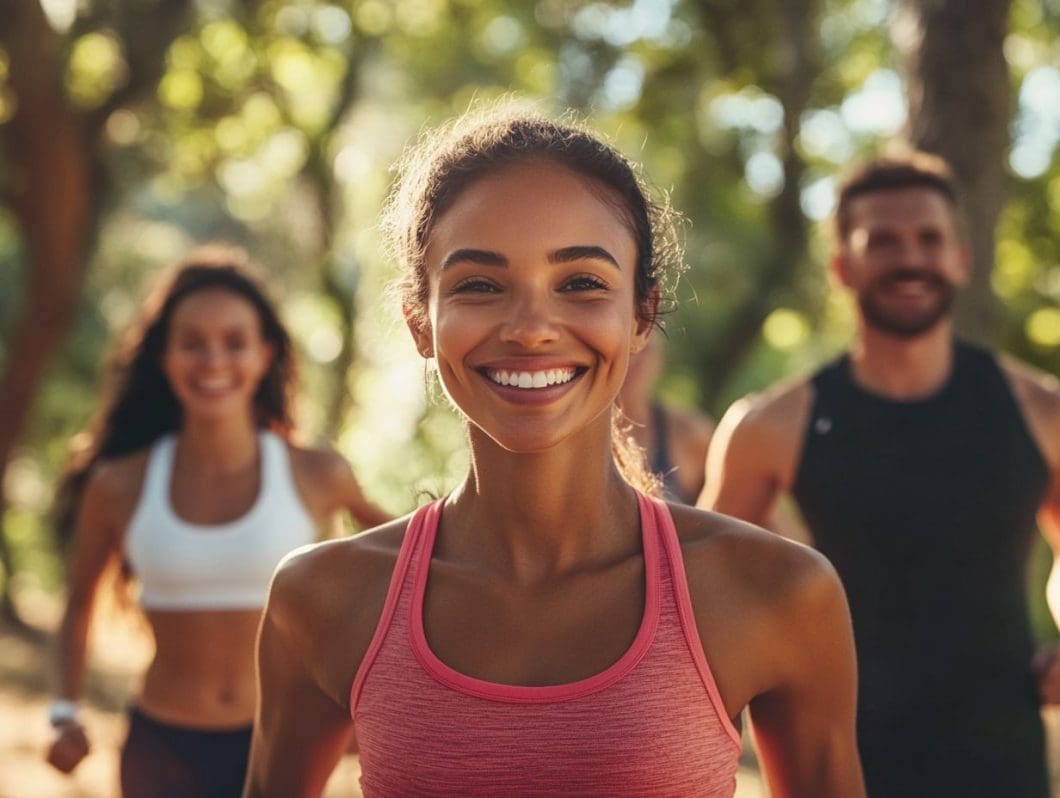Fitness and beauty are often seen as distinct goals, but their intertwined relationship can significantly impact overall well-being.
This discussion uncovers the connection between physical fitness and beauty, highlighting how regular exercise transforms our bodies and enhances our skin, hair, and self-esteem.
From the benefits of improved skin health to the boost in confidence, learn how embracing fitness can elevate both appearance and mindset.
Explore how a commitment to fitness can lead to a more attractive physique and a positive body image.
Table of Contents
Key Takeaways:
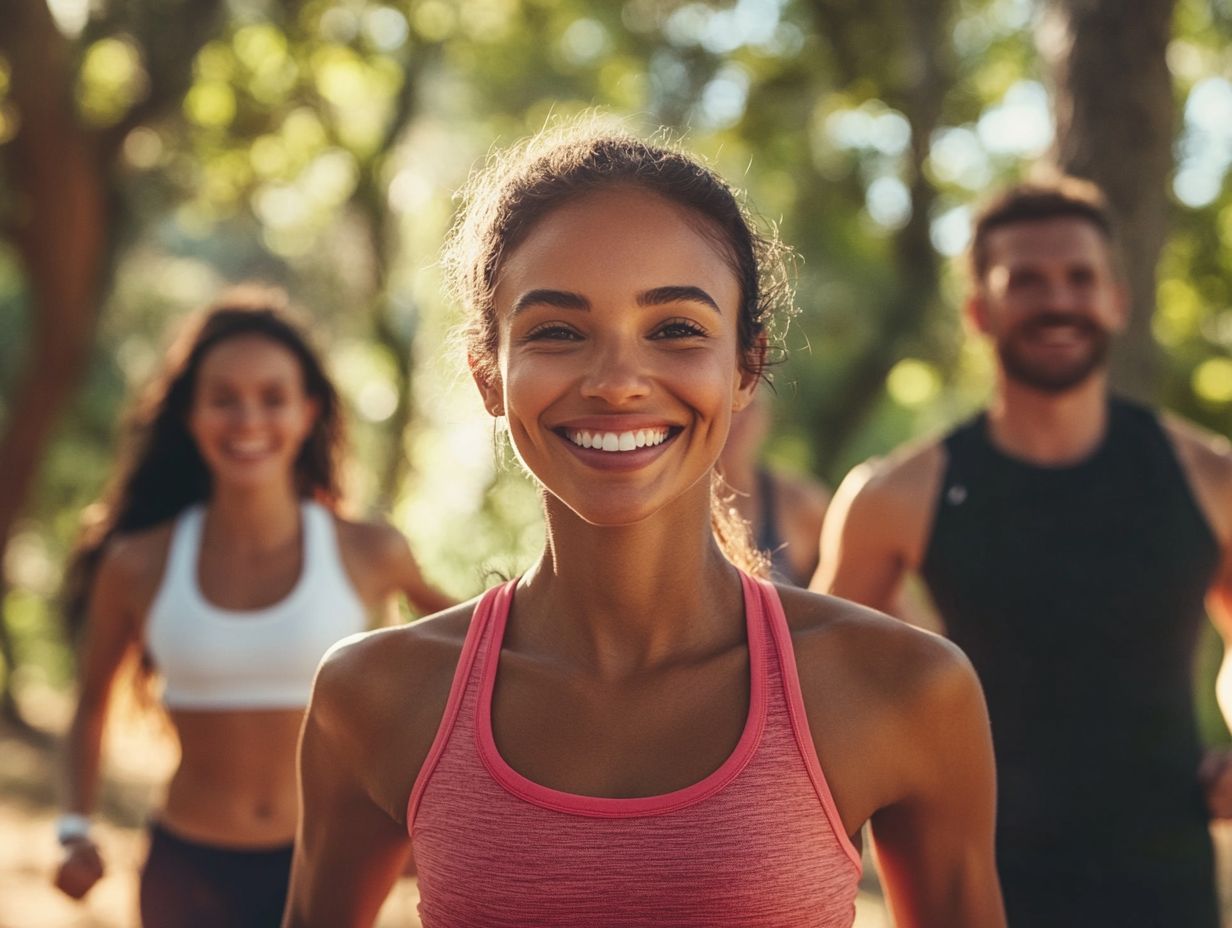
- Exercise not only improves physical health, but also has a direct impact on our appearance by promoting healthy skin, hair, and nails.
- Regular physical activity can boost self-confidence and reduce stress and anxiety, leading to a more positive body image.
- By incorporating fitness into our routine, we can enhance our beauty by creating a more attractive physique and promoting a positive body image.
The Relationship Between Fitness and Beauty
The intricate relationship between fitness and beauty has garnered increasing recognition, highlighting the ways in which physical fitness enhances body image and contributes to emotional well-being.
Regular engagement in exercise fosters a sense of beauty that reflects both inner health and outer appearance, promoting body appreciation and acceptance.
This connection transcends mere aesthetics, encompassing the psychological benefits associated with improved self-confidence and a positive body image, thereby aligning with the broader concept of wellness.
Experts such as Dr. Kim McNally underscore the significance of integrating fitness into daily routines to establish a comprehensive connection between beauty and health.
Exploring the Connection
The exploration of the relationship between exercise and beauty unveils a compelling interaction wherein physical activity stimulates the release of endorphins, thereby enhancing emotional well-being and self-confidence.
This increase in feel-good hormones not only improves mood but also positively influences one’s perception of body image, fostering a more favorable self-view. Notable researchers, including Tracy Tylka, emphasize that regular engagement in physical activity encourages individuals to value their bodies for their capabilities rather than focusing exclusively on aesthetic aspects.
A study conducted by Tylka indicates that individuals who exercise consistently report greater satisfaction with their bodies, which correlates with improved mental states. Numerous testimonials illustrate how fitness routines not only build physical strength but also cultivate a sense of pride and ownership over one’s body, ultimately contributing to enhanced mental well-being.
Physical Benefits of Exercise
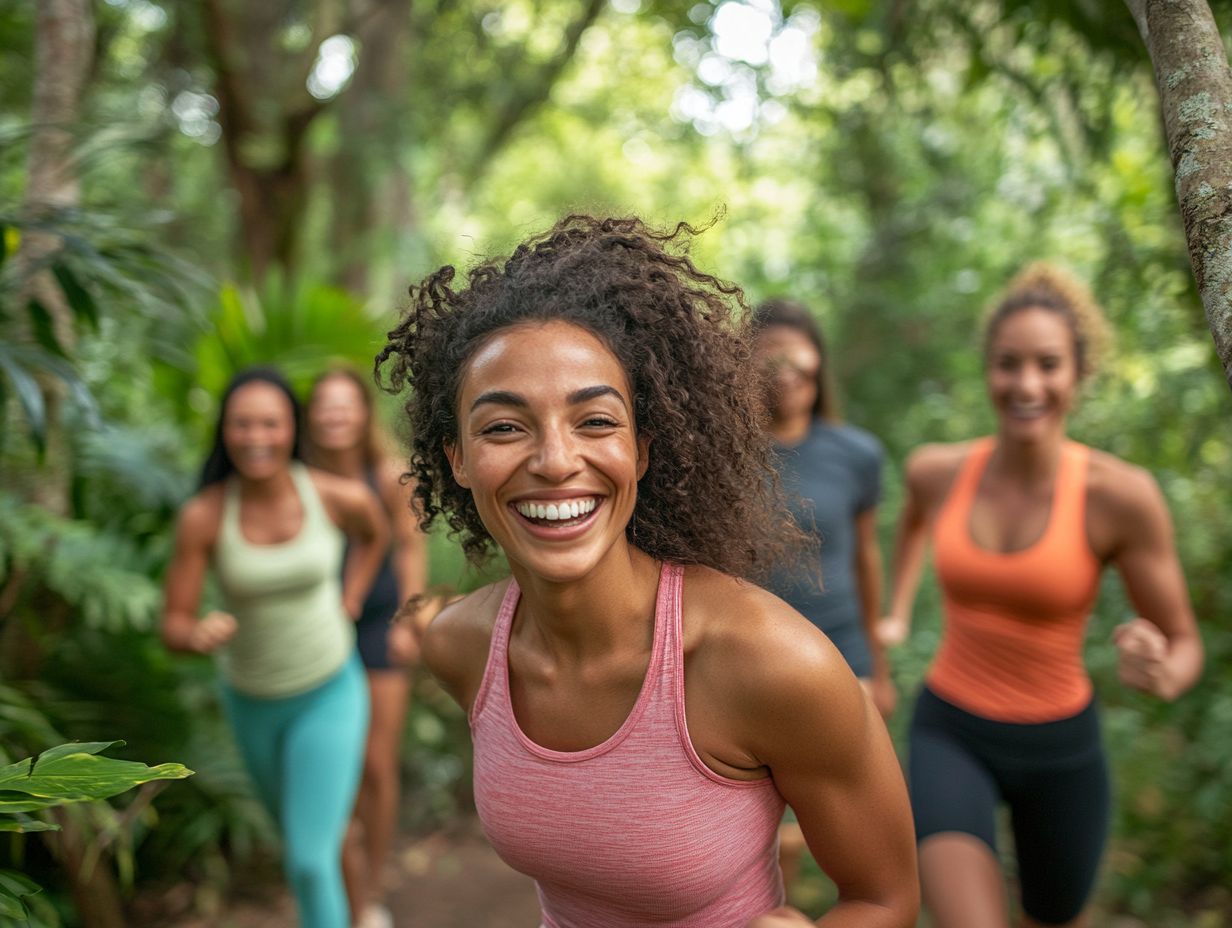
The physical benefits of exercise encompass much more than weight loss and an increased metabolism; they significantly influence crucial aspects of skin health, body image, and overall vitality. Regular engagement in physical fitness activities enhances collagen production, promotes hydration, and aids in detoxification processes, leading to a more radiant appearance.
Furthermore, physical activity bolsters the immune system, ensuring optimal bodily function. Esteemed experts such as Edon Tamir and Alanna Peykar emphasize these benefits as essential for cultivating a positive self-image and achieving body acceptance.
Improving Skin Health
Improving skin health through exercise is primarily achieved by enhancing circulation, which delivers essential nutrients and oxygen to the skin, thereby promoting a healthy glow and a youthful appearance.
This increased blood flow not only facilitates the rejuvenation of skin cells but also aids in the removal of toxins that may contribute to blemishes and other skin issues. Regular physical activity serves as a natural detoxifier, ensuring that impurities are expelled efficiently, which results in a clearer complexion.
When combined with adequate hydration, this process is further enhanced, as proper water intake helps maintain skin elasticity and suppleness.
Furthermore, essential nutrients derived from a balanced diet complement exercise, allowing the skin to benefit from a plentiful supply of antioxidants and vitamins that are vital for preserving an even skin tone. Collectively, these elements play a critical role in achieving vibrant and healthy skin.
Strengthening Hair and Nails
Strengthening hair and nails is a significant benefit of regular physical fitness, as improved circulation and a balanced diet rich in essential nutrients contribute to their vitality.
When individuals engage in physical activity, they enhance blood flow, ensuring that oxygen and vital nutrients reach every cell in the body, including those that support hair and nail growth. Nutrients such as biotin, zinc, and vitamins A, C, and E play critical roles in maintaining the structural integrity of healthy hair and nails. As fitness routines become more consistent, the body’s capacity to deliver these nutrients improves, promoting stronger and more resilient hair and nails.
Additionally, proper hydration during and after exercise further enhances this process, making each workout not only a step toward overall health but also an investment in beauty and self-care.
Mental Benefits of Exercise
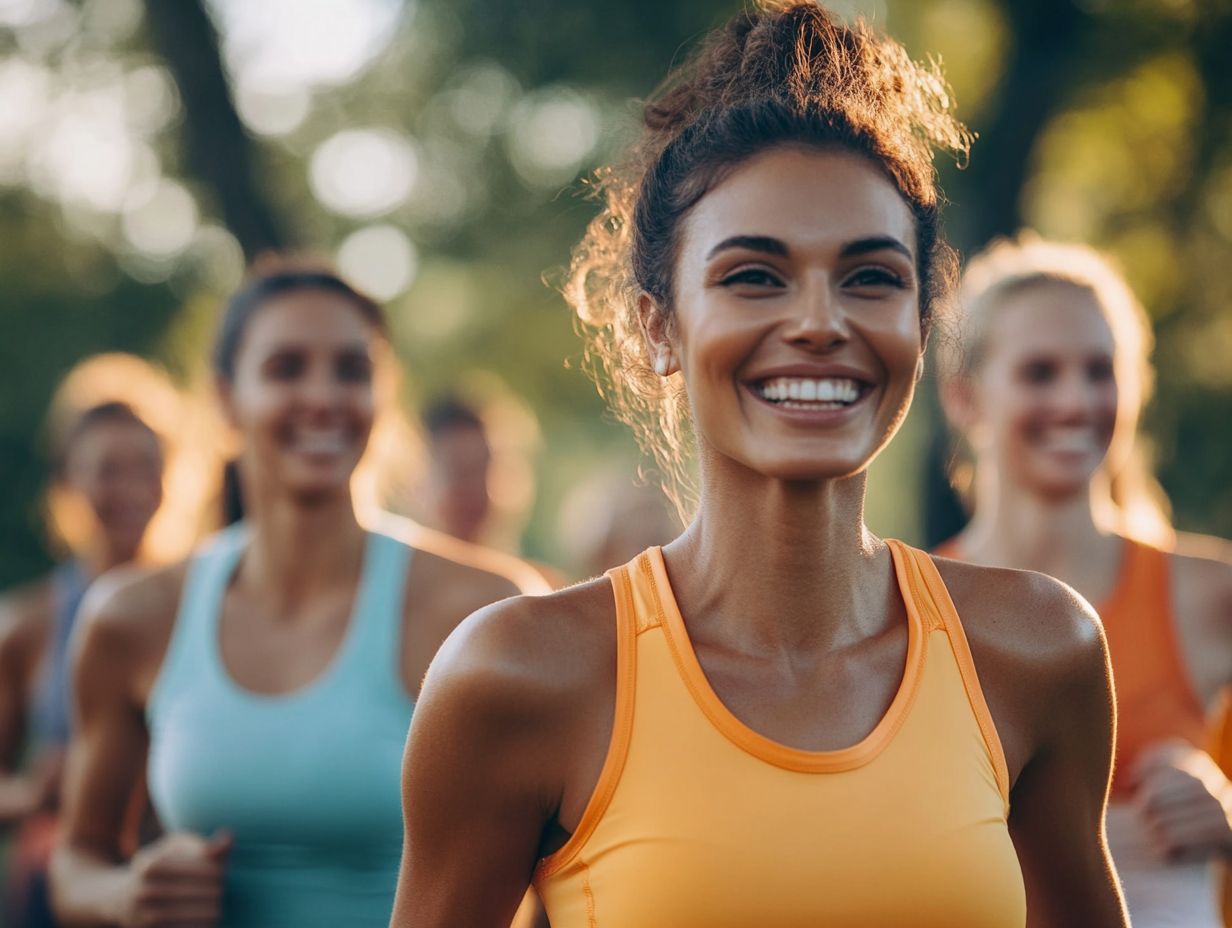
The mental benefits of exercise are substantial, influencing various aspects of emotional well-being, including enhanced self-confidence and effective stress management. Regular physical activity facilitates the release of endorphins, commonly known as ‘feel-good’ hormones, which are essential in enhancing subjective well-being.
As individuals participate in fitness routines, they frequently experience a positive transformation in their mental outlook, resulting in improved emotional stability and resilience. This, in turn, has a considerable effect on overall mental health.
Boosting Self-Confidence
Enhancing self-confidence represents a significant advantage of regular exercise, as it allows individuals to value their bodies and cultivate a positive body image.
Engagement in physical activity often results in notable improvements in overall mood and self-worth. Research demonstrates that even moderate exercise can trigger the release of endorphins, which are recognized for their ability to elevate mood and alleviate feelings of anxiety.
For example, a study published in the journal *Psychology of Sport and Exercise* revealed that participants who exercised regularly reported higher levels of self-esteem in comparison to their sedentary counterparts.
Furthermore, testimonials from fitness enthusiasts frequently express feelings of achievement and pride, underscoring how the attainment of fitness goals fosters a deeper appreciation for one’s body. This transformation not only contributes to improved physical health but also facilitates a more positive relationship with one’s self-image.
Reducing Stress and Anxiety
Reducing stress and anxiety through exercise is a well-documented benefit, as physical activity effectively lowers cortisol levels while increasing endorphins within the body.
Plus these immediate biochemical changes, regular exercise fosters long-term emotional resilience by enhancing the body’s capacity to respond to stressors. Research indicates that engaging in aerobic activities, such as running or cycling, not only elevates mood but also promotes neurogenesis—the creation of new neurons in the brain. This process holds particular significance in areas associated with mood regulation, such as the hippocampus.
Moreover, exercise often encourages a sense of community when performed in groups, providing essential social support that is crucial for maintaining emotional well-being. Through these mechanisms, physical activity emerges as a fundamental tool for cultivating emotional stability and alleviating feelings of anxiety.
How Fitness Enhances Beauty
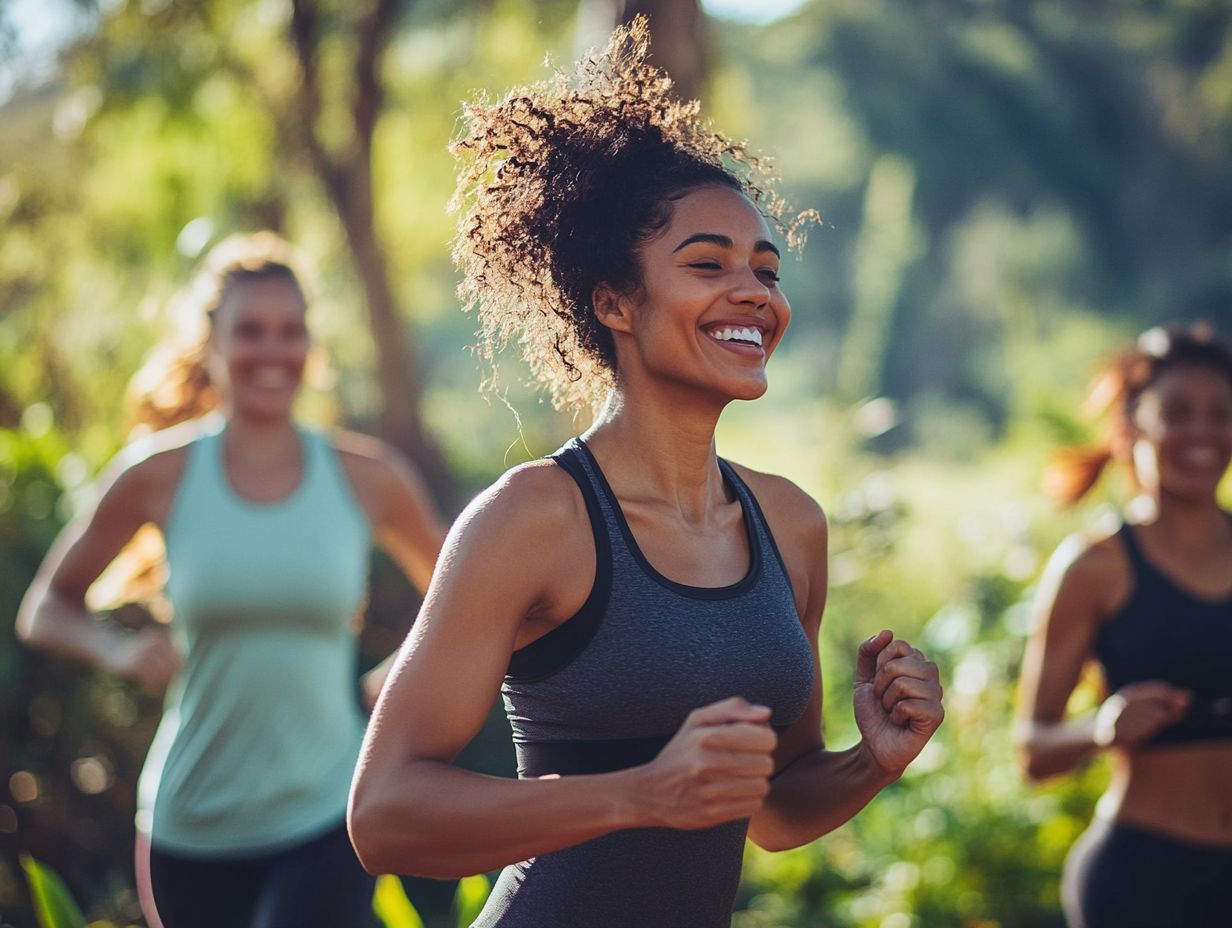
Fitness enhances beauty by promoting physical attractiveness and fostering a positive body image, which in turn leads to increased self-esteem and confidence. The release of human growth hormone during exercise contributes to a post-workout glow that reflects both internal health and external beauty.
This transformation encourages greater appreciation and acceptance of one’s body, allowing individuals to fully embrace their unique beauty, as supported by research from experts such as Tracy Tylka.
Creating a More Attractive Physique
Developing a more appealing physique through a dedicated exercise regimen not only facilitates weight loss but also transforms body image and enhances overall appearance.
When individuals commit to specific exercise programs—such as strength training, cardiovascular workouts, or flexibility exercises—they often observe significant transformations in both their physical appearance and their levels of confidence.
For example, the integration of high-intensity interval training (HIIT) can expedite fat loss while promoting the development of lean muscle, resulting in a toned and sculpted physique. Similarly, practices such as yoga can enhance posture and body awareness, fostering a sense of grace and poise.
By consistently adhering to a well-structured fitness plan, many individuals find that their self-esteem flourishes as their bodies adapt and transform, ultimately leading to a more positive body image and a renewed sense of give the power toment.
Promoting a Positive Body Image
Promoting a positive body image through fitness entails fostering self-acceptance and body appreciation, both of which are vital components of overall wellness.
By emphasizing not only physical appearance but also strength, endurance, and mental health, individuals can transform their perspective on fitness and its significance. Experts emphasize that engaging in regular physical activity not only improves mood but also enhances self-esteem when it aligns with personal wellness objectives.
Research indicates that incorporating practices such as yoga and mindfulness can further cultivate a positive relationship with one’s body, encouraging individuals to value their capabilities rather than solely focusing on their physical shape.
Integrating these strategies into fitness routines fosters a more holistic approach, where emotional well-being and physical health mutually reinforce one another.


